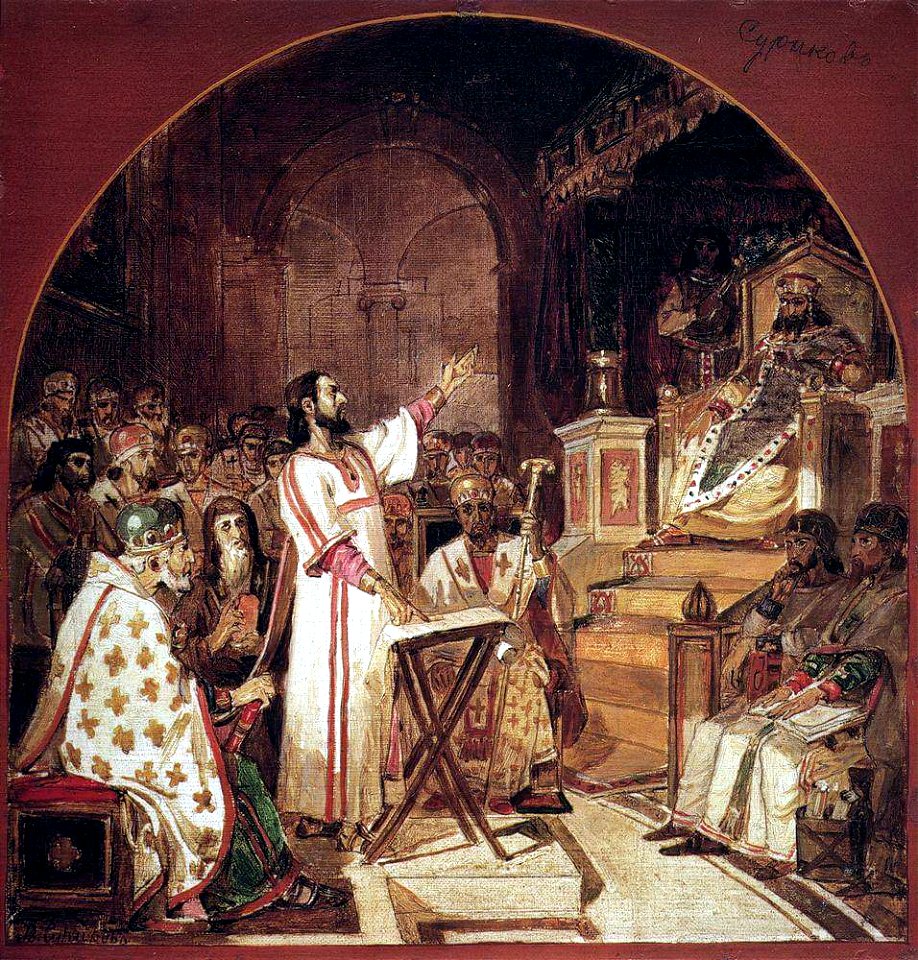By August of 325, the Council of Nicaea had concluded its business and adopted the original form of the Nicene Creed. They had met from May to July to discuss an important question for the developing church, “Who was Jesus Christ?”
It was a turning point for Christianity in the Roman empire. In 312, Emperor Constantine had professed faith in Christ and legalized Christianity in the empire. Soon after, a presbyter named Arius began teaching a new doctrine in Alexandria, Egypt. His theories troubled his superior, Alexander. Arius ignored all discipline and had persuaded 89 other presbyters by the year 321.
Constantine, watching the church dividing, called an empire-wide meeting of church leaders. He knew more about politics than theology, and anticipated an easy reconciliation. Arius questioned Christ’s relationship with God the Father. The difference came down to the Greek letter iota. Are the Father and Son homoousia or homoiousia? Homoousia means “of the same substance”, while homoiousia means “of similar substance.” Is Jesus of the same substance as the Father, or merely of similar substance with the Father? A slippery, though powerful orator, Arius challenged the orthodox understanding of the Trinity.
The debate was far from academic squabbling about metaphysics. Like today’s Mormons, Arius taught that Jesus Christ was a created being. Arius smoothly reframed John 1:1, stating that “There was a time when Jesus was not.” Though Arius positioned himself as protector of monotheism, he effectively proposed two separate deities, supreme Father and subordinate Christ.
After months of discussion, the Council of Nicaea drafted a creed that declared Christ of the same substance as the Father. Most of the delegates signed it. Many truly believed it, although others only signed to retain Constantine’s favor.
Arius baldly rejected it, and thereby denied a core tenet of Biblical orthodoxy. The Council excommunicated him, and Constantine exiled him. The end of the Council wasn’t the end of Arianism: it had rooted deeply in the early church. But the God of the Covenant preserved and refined the church through the courage of Alexander, Athanasius, and numberless saints whose names are only recorded in the Lamb’s Book of Life. Today, the OPC treasures the Creed written by this Council, and expanded in 381. The saints have echoed it for 1700 years.
Today’s entry was written by Athan DeJong, a senior at Dordt College.

© 2026 The Orthodox Presbyterian Church